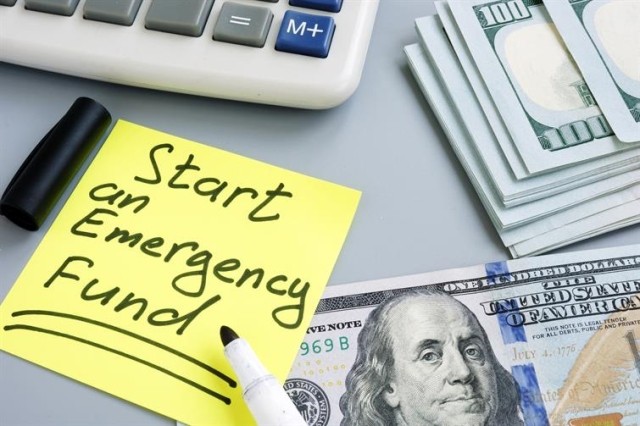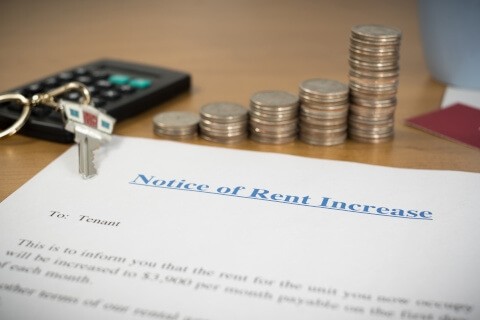
When it comes to finding a rental property to invest in, there are so many factors to consider. Location, safety, convenience, and of course price are just a few things you need to consider when looking for a rental property to purchase. There are also several steps in the purchase process to prepare for, whether you’re using an agent or going it alone. Keep reading so you can put your best foot forward when it comes time to purchase a rental property.
Choose the Right Location
The first step to finding the perfect property is to ensure you are looking in a location that will be profitable. This includes factors like:
- Affordability
- Job growth
- Population growth
- Proximity to entertainment (restaurants, shopping centers, theatres)
- Safety
- Property taxes
- Proximity to schools and universities
- Access to public transportation
A lot of these factors can be answered with just a quick search. Apartments.com wraps a lot of these features into one when you search for a property or neighborhood. You can read a detailed area guide on the area, get biking and walking scores, top-rated schools in the area, and more. Once it’s time to list your property, using these key factors in the description will help draw in more tenants. You can also view a rent comparables report for your area to get an idea for how much you should be charging for rent.
Find a Property
So, you’ve settled on an area but not on a property. Your next step is to comb through the listings in that area and decide on what type of property is for you. Maybe you’re in search of a charming single-family house to rent out. Your renters will enjoy a unique space for them, probably a yard, and more privacy than an apartment.
You might also be considering a multi-unit building. With multiple units you’ll still have a consistent income flow if one tenant moves out, but your initial and running costs will be greater than single-family property.
You can also look at townhomes and condos to get a better sense of what property is right for you. Once you have, it’s time to start touring properties.
Start the Tour Process
After you’ve made a list of properties you’re interested in, it’s time to start touring your top choices. Ideally, you want to visit the property in person so you can get a better sense of the space, as well as its overall condition. If you can’t tour in person, virtual tours are becoming much more commonplace and easier to set up.
Keep an eye out for open houses. You can even attend a virtual open house, an event typically set up so that the listing agent live streams a walkthrough of the property. This can be beneficial if you’re looking at properties in a different state since you’ll be able to attend whichever virtual open house session works for you.
What to Look Out for in a Property
However you explore your potential properties, there are some critical points you’ll want to look at in detail before you make an offer:
Foundation. This is arguably the most critical area of your home. A bad foundation can make your home unlivable and cost thousands to repair. Inspect the foundation of the property for cracks, erosion, or any other irregularities.
HVAC system. Heating and air conditioning (where applicable) are legally required to keep your property livable for tenants. Make sure you know how old the system is and make note of where the furnace and AC are located. This will help give you an idea of how easy they will be to repair or replace.
Roof. An old roof can become a massive headache if it’s not replaced. Old shingles and other roof materials can begin to leak, leading to other problems in your property. A new roof is one of the most expensive home items to replace, so make sure it’s in good shape.
Electrical system. Chasing electrical problems can be a nightmare for even the most seasoned electricians. Make sure your prospective property uses updated wiring and fuse boxes to prevent electrical shock or fires.
Water drainage. Bad drainage around your home can lead to erosion and foundation issues. Make sure the property you’re looking at has gutters and spouts in good condition, or another drainage system in place to keep water away from the house.
It’s in your best interest to have the property properly looked over by a home inspector before you purchase. It’s not always required, but most lenders will want an inspection and appraisal before they approve a home.
You may also receive a seller’s disclosure as you near the closing process on a property. This is a list drafted by the seller stating any issues with the property with the systems mentioned above (and more). It can help shed some light on any issues you missed or help you negotiate a better deal.
Brush Up on Your Negotiation Skills
Negotiating on the price of a property can be the most intimidating part of buying without an agent. Knowing the prices of similar homes in the area will help give you a good baseline when you start negotiations. Always offer lower than whatever amount you’ve been approved for or are prepared to pay, that way you leave yourself room for negotiation. It is essential to know what goes into financing a rental property, such as what kind of mortgage and loan term you want.
Any issues you noted during your inspection should also be considered when negotiating price. You can ask the seller to repair these items before closing, or to reimburse you for the cost of the repairs if you would rather handle them yourself or with your own contractor.
It’s best to do any negotiating in writing, especially if you’re not using an agent. Save emails, texts, letters, and any other tangible form of contact between you and the seller in the event that other issues with the property are found or they try to go back on the agreed-upon price when it’s time to close.
Close with Confidence
You’ll be dealing with a lot of paperwork as you prepare to purchase a property, especially if you’re not using an agent. You need to know how to write an official offer letter, and as soon as your offer is accepted, you’ll need to navigate the closing paperwork as well.
A closing disclosure should be sent to you once you close on the property. This will walk you through the terms of your loan (if you’re using a lender), the closing costs, and more. It’s also wise to have an attorney review any of the closing documents, because no matter how you’re paying, purchasing a property will probably be the biggest transaction you’ll ever take part in
Final Considerations
Don’t be scared to cancel the sale if negotiations aren’t going your way or a home inspection reveals some serious issues. You don’t want to be stuck with a property that will demand more maintenance than the monthly rent can cover.
If you’re unsure about any of the documents you’ll receive throughout the process, hire an attorney to review them. Don’t wait until you’ve already closed.
Finding and buying a rental property can be a time- and cash-consuming process. No matter how you’re handling what may be one of the biggest purchases of your life, it’s always better to be prepared. So, know what factors are most important to you, brush up on your negotiation skills, and get ready for some paperwork. Once you've added this property to your portfolio, keep track of your finances with Apartments.com's expense tracking platform. Summarize rental expenses by property and tax category and keep track of costs for each investment property.











